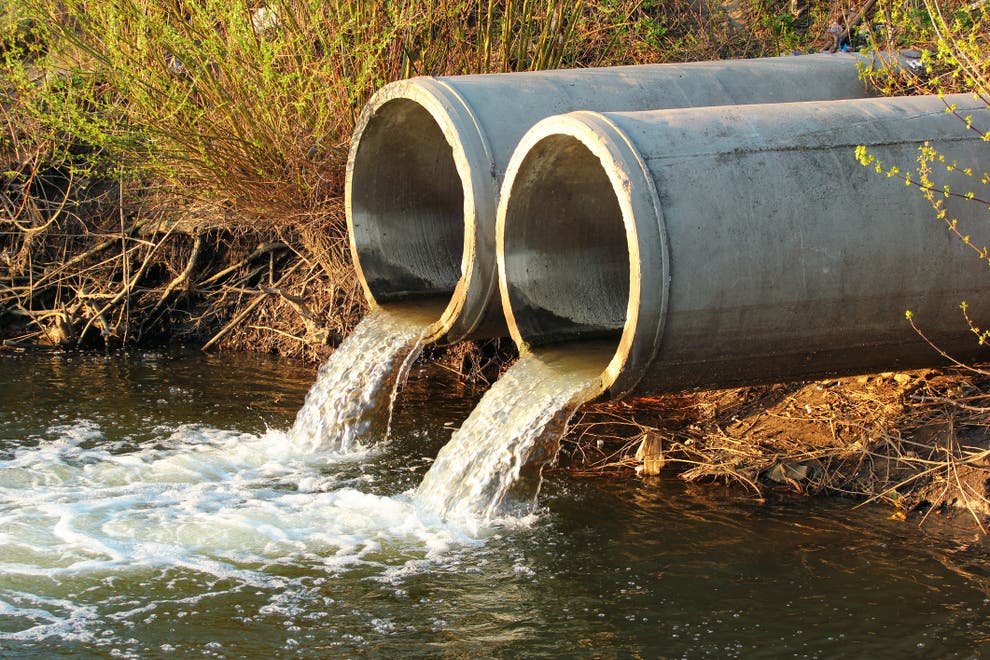Plans to stop water firms dumping raw sewage in rivers don’t go far enough, campaigners say
MPs back government amendment calling on firms to make ‘progressive reduction’

Your support helps us to tell the story
From reproductive rights to climate change to Big Tech, The Independent is on the ground when the story is developing. Whether it's investigating the financials of Elon Musk's pro-Trump PAC or producing our latest documentary, 'The A Word', which shines a light on the American women fighting for reproductive rights, we know how important it is to parse out the facts from the messaging.
At such a critical moment in US history, we need reporters on the ground. Your donation allows us to keep sending journalists to speak to both sides of the story.
The Independent is trusted by Americans across the entire political spectrum. And unlike many other quality news outlets, we choose not to lock Americans out of our reporting and analysis with paywalls. We believe quality journalism should be available to everyone, paid for by those who can afford it.
Your support makes all the difference.A move by Boris Johnson’s government to stop water companies from dumping raw sewage into Britain’s rivers and the sea does not go far enough, campaigners have warned.
On Monday evening MPs voted 283-163 in favour of an amendment that calls on firms to make a “progressive reduction” in the amount of sewage they pump into the nation’s waterways.
Environment minister Rebecca Pow also met with company bosses to make it “crystal clear” that the government is “absolutely committed to cutting harmful sewage entering our precious watercourses”.
But critics argue that the proposals aren’t adequate because they do not stipulate measurements or metrics for the reduction required by water companies.
Jo Maugham, director of the Good Law Project, called the amendment a “political ruse” that places a “meaningless” duty on firms.
And Green Party peer Baroness Jones of Moulsecoomb said the government latest concession was “not good enough” since failed to stipulate the amount of the reduction required by water companies.
She said: “The government is running scared of the water companies and their owners when what they should be doing is thinking about the health of people and the environment.”
Lady Jones added: “It’s a typical government fudge to make their MPs think they’re doing the right thing.”
The Duke of Wellington’s amendment to the Environment Bill in the Lords was aimed at placing a new legal duty on water companies to “take all reasonable steps” to prevent sewage discharges.
The independent crossbencher's proposal was approved by the upper chamber last month. This meant the bill was sent back to the Commons and enabled the government to table its alternative concession following a fierce public backlash.
A total of 22 Conservative MPs rebelled last month to support the Duke of Wellington’s initial proposal.
Environmental activist and former Undertones singer Feargal Sharkey has led a social media campaign to push for tougher laws on the issue, with his allies putting pressure on their MPs.
The musician told the BBC that it would be “an act of violence against the environment” if the government’s own plans were eventually approved.
The bill as a whole seeks to write environmental principles into UK law for the first time, following Brexit.
It is currently in the parliamentary stage known as “ping-pong”, where a piece of legislation moves between the Commons and Lords until agreement can be reached.
George Eustice, the environment secretary, insisted that the government concession voted through on Monday evening is “mirroring” what peers have already voted for in the Lords.
The minister said: “It does everything the Duke of Wellington’s amendment did, and so he recognised that this is a challenge that you wouldn't solve overnight because the cost of removing all of these storm overflows could be up to £600bn. But that’s not to say we shouldn’t significantly reduce their use.”
Join our commenting forum
Join thought-provoking conversations, follow other Independent readers and see their replies
Comments